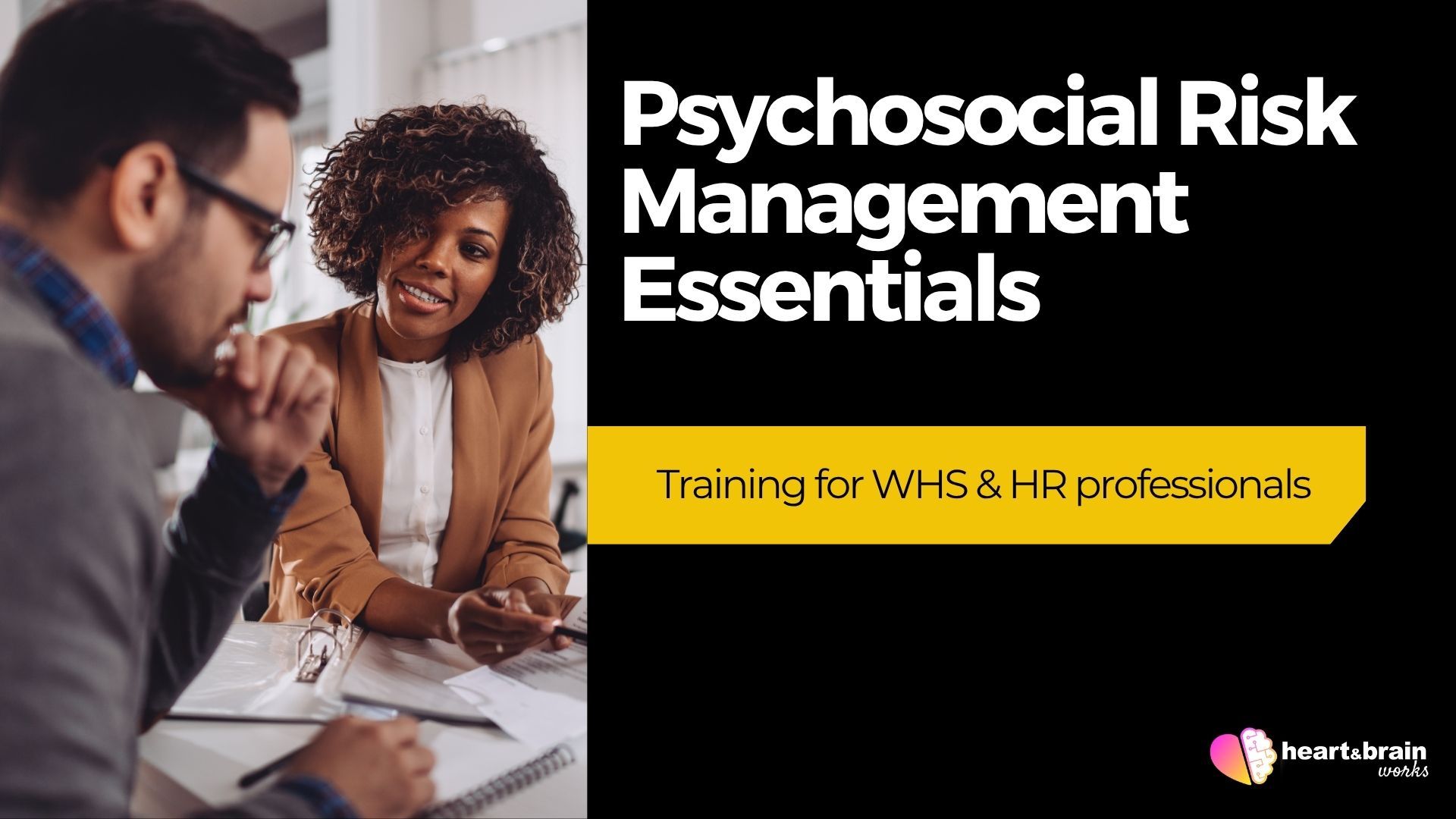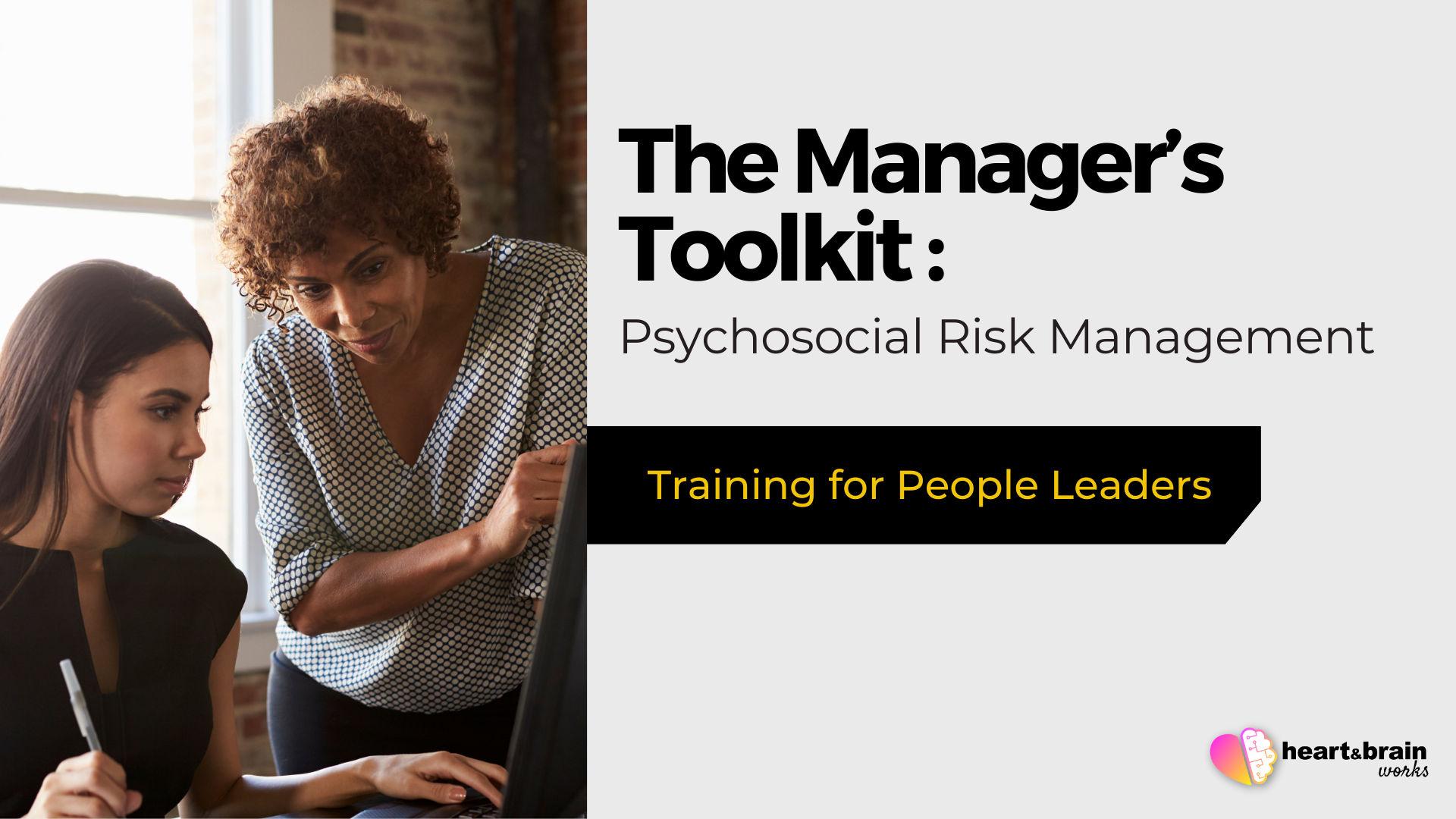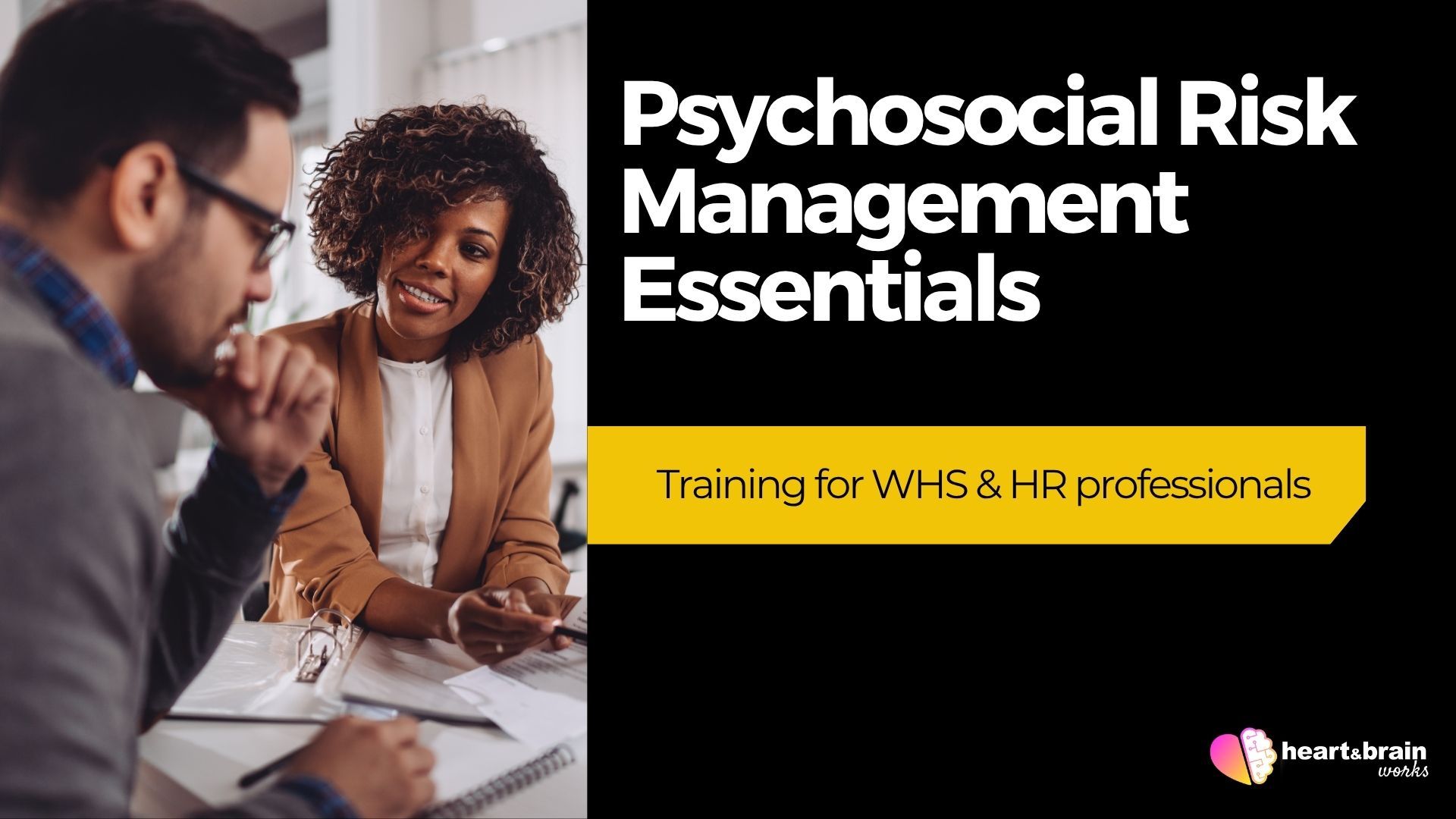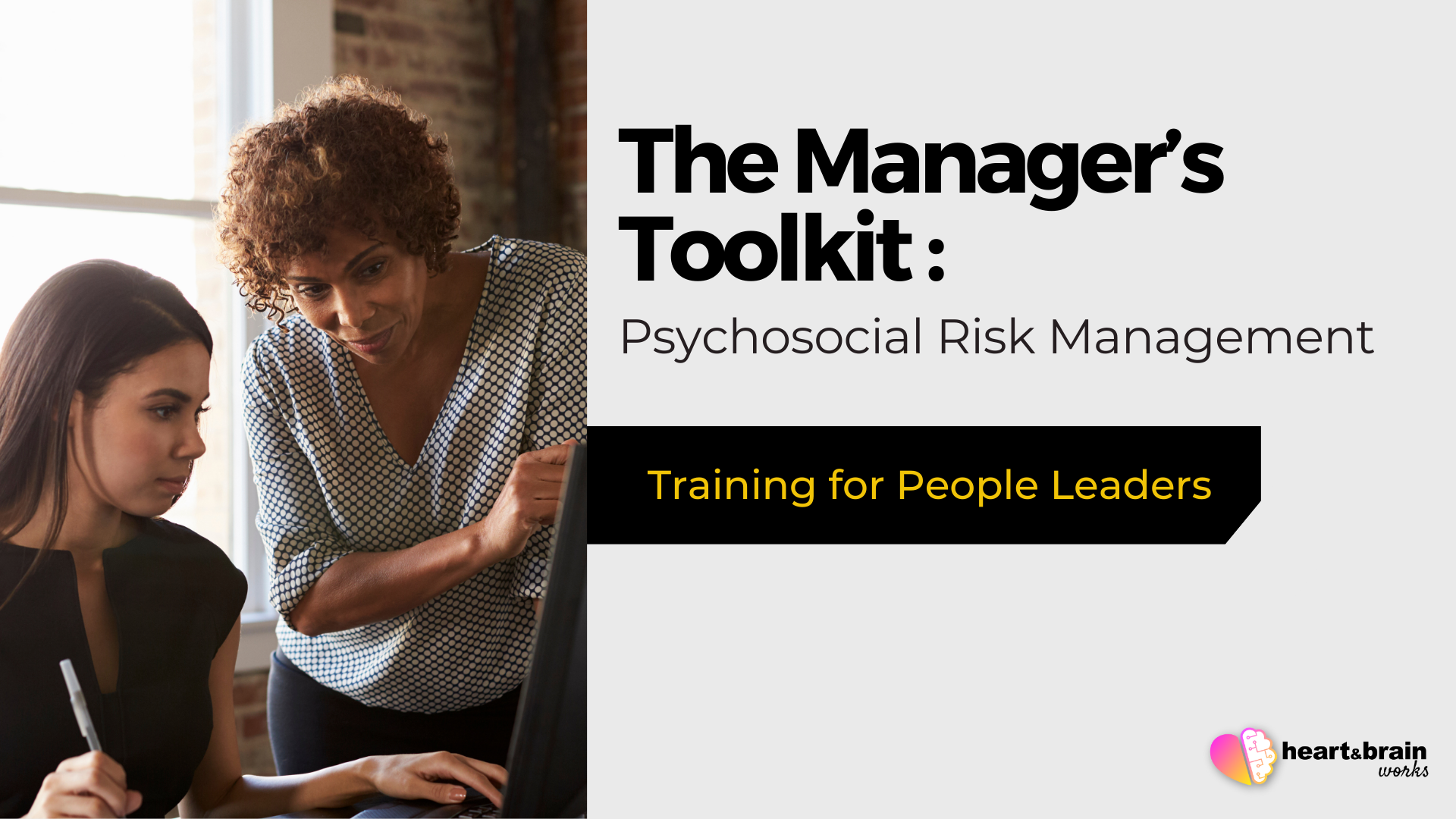Leading with Purpose:
A CEO's Perspective on Managing Psychosocial Risk in Aged Care
In this powerful session hosted by Dr Georgi Toma of Heart and Brain Works, guest speaker Rachael Cook—award-winning CEO of Inclusee—shared a deeply practical and inspiring perspective on how leadership can drive meaningful change in psychosocial risk management.
Rachael leads Inclusee, a fully remote aged care provider tackling social isolation. Under her leadership, the organisation achieved a 98% staff engagement score and reached full delivery capacity for the first time in 50 years.
Please read a summary of the main takeaways below. To access the full content, please watch the recording.
What made you prioritise psychosocial risk management early on before it became legislation?
For Rachael, prioritising psychosocial risk management was never about legal compliance—it was about values, culture, and doing what was right for her team. She viewed psychosocial risk management as central to shaping a healthy, high-performing organisational culture, particularly given the team was fully remote and operating in an emotionally demanding sector like aged care.
Rather than wait for legislative requirements, she embedded psychological health and safety into the organisation’s foundations from day one, believing it to be a necessary condition for a thriving workforce. This approach helped Inclusee build a positive and connected culture.
What were the organisational benefits that followed from that early adoption – from culture to performance?
Inclusee’s early adoption of psychosocial risk management led to significant cultural and operational benefits. As an aged care organisation serving vulnerable populations and operating as a fully remote workforce, Inclusee faced unique challenges related to isolation, cognitive and emotional demands, exposure to vicarious trauma and high job demands.
Proactively addressing these psychosocial hazards enabled the organisation to foster stronger connections between staff, build a sense of belonging, and align team experiences with the company’s mission to reduce social isolation. Embedding these practices early created a more engaged, resilient, and well-supported workforce.
How was it for you to work with Heart Brain Works? What made our approach different and effective?
Working with Heart Brain Works provided Inclusee with an independent, expert-led process that made it easier for employees to provide honest feedback. The external team offered a psychologically safe and credible channel that team members trusted, especially for sensitive concerns they might not feel comfortable raising internally.
Alongside yearly psychosocial risk audits, Inclusee worked with Heart Brain Works to provide bespoke Psychosocial Risk Training to its staff and managers, as well as quarterly Wellbeing Sessions tailored to staff expressed areas of interest.
The process was tailored, compassionate, and informed by a strong scientific foundation. It allowed Inclusee to benchmark psychosocial risk management performance and measure outcomes, which helped leadership understand the organisation’s standing and areas for improvement. The partnership created an environment where feedback was seen as constructive and impactful—ultimately strengthening the organisation’s feedback culture and reinforcing trust.
What advice would you give to WHS or HR professionals seeking to gain buy-in from their executive leaders and boards?
To gain buy-in from senior leaders and boards, it is essential to position psychosocial risk management as a strategic enabler rather than a compliance requirement. The key is to connect it directly to business outcomes—such as company culture, staff engagement, retention, and performance.
By framing psychosocial initiatives in terms of their organisational impact and alignment with purpose, WHS and HR professionals can create a compelling case that resonates with executive priorities. This strategic approach helps shift the conversation from obligation to opportunity, making it easier to secure leadership support.
Are there any lessons for others in aged care and community services you would like to share?
Aged care and community services professionals often work in high-risk, emotionally demanding environments. Rachael underscored the importance of designing systemic supports to protect and sustain frontline workers, rather than relying solely on individual resilience.
At Inclusee, this meant integrating wellbeing into the structure of daily work—such as scheduled breaks for recovery, clear escalation pathways for challenging situations, and regular check-ins for team members. These practices ensured psychological safety was embedded into operations rather than treated as an afterthought.
She also highlighted the importance of continuous improvement, noting that what works for one team may not suit another. Feedback loops, adaptability, and tailored support were critical to ensuring staff remained connected, well-supported, and able to deliver quality care.




